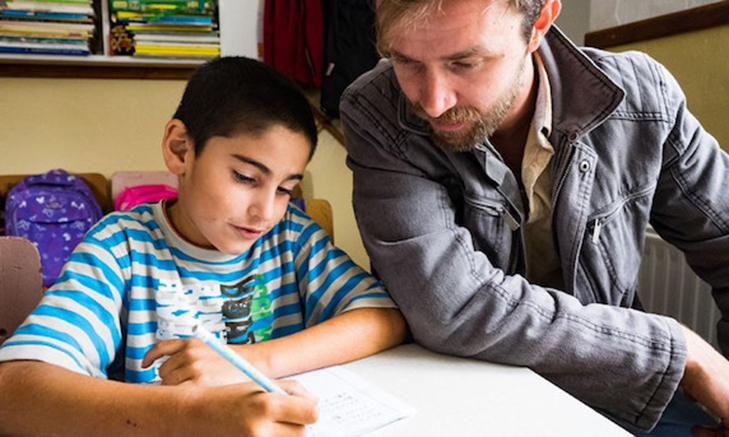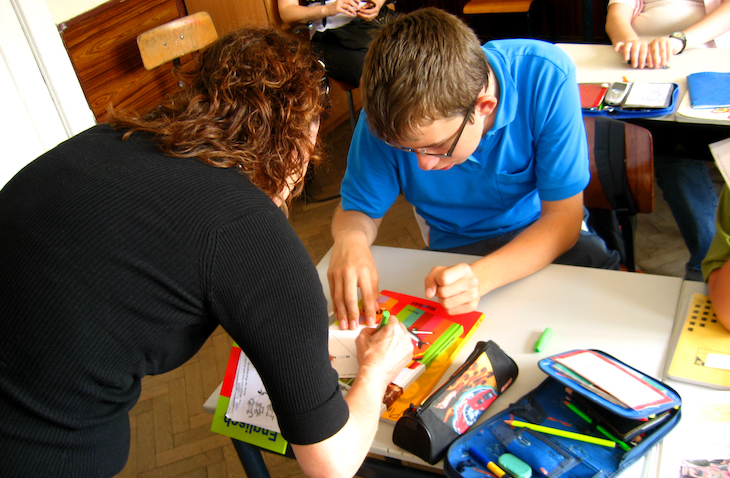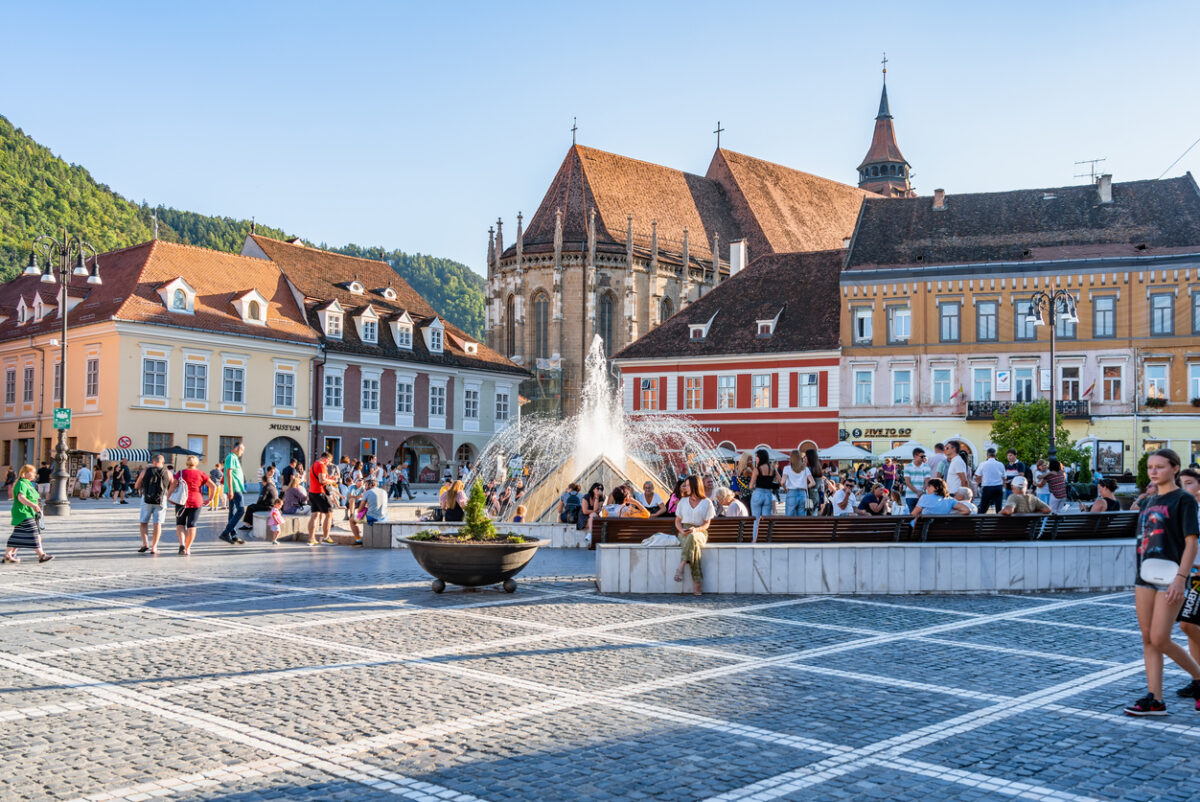Teaching English in Romania is an enriching experience that offers the opportunity to immerse oneself in a diverse culture, explore the picturesque landscapes, and make a significant impact on students’ lives. Whether you are a seasoned educator or a recent graduate looking for your first teaching assignment abroad, Romania provides a unique and rewarding environment.
Why Teach English in Romania?
Cultural Immersion: Romania is a country rich in history and tradition. By teaching English here, you have the chance to immerse yourself in the local culture, learn the Romanian language, and experience the warmth and hospitality of its people.

Beautiful Landscapes: From the stunning Carpathian Mountains to the serene Black Sea coast, Romania’s natural beauty is breathtaking. Living and working in Romania allows you to explore its diverse landscapes during your free time.
Affordable Living: The cost of living in Romania is relatively low compared to many Western countries. This means your salary can go further, allowing you to enjoy a comfortable lifestyle and save money.
Growing Demand for English: As Romania continues to integrate into the European Union and global economy, the demand for English language skills is increasing. This creates ample opportunities for English teachers.
Where to Find Teaching Jobs
Private Language Schools: These schools are the most common employers of English teachers in Romania. They offer language courses to both children and adults and are located in cities across the country.

Public Schools: Some public schools hire native English speakers as language assistants or full-time teachers. These positions may offer fewer hours but provide a chance to work within the Romanian education system.
International Schools: Located mainly in larger cities like Bucharest and Cluj-Napoca, international schools offer English-medium education and often seek qualified teachers for various subjects, including English.
Universities: Higher education institutions occasionally hire English teachers for language courses or English for Specific Purposes (ESP) programs.
Qualifications and Requirements
To teach English in Romania, you typically need:
- Bachelor’s Degree: While not always mandatory, a bachelor’s degree is often preferred by employers.
- TEFL/TESOL Certification: Most schools require teachers to have a TEFL (Teaching English as a Foreign Language) or TESOL (Teaching English to Speakers of Other Languages) certification. This demonstrates your ability to teach English effectively.
- Native or Fluent English Speaker: Being a native speaker or having a high proficiency in English is essential.

- Previous Teaching Experience: Some schools prefer candidates with prior teaching experience, though there are opportunities available for newcomers to the field.
- Gain Experience Teaching English in Romania
- The Teaching English Volunteer Project with IVHQ aims to improve education access in Miercurea Ciuc by enhancing students’ English skills. Open to volunteers aged 18+ and ideal for fluent English speakers interested in teaching, the project offers opportunities to lead classes, support local teachers, and engage in various educational activities, fostering personal and professional growth while exploring Romanian culture. There’s also their After-School Support Program and the Summer Camp Volunteer Project for something a bit more than just teaching!
- Gain practical teaching experience with Projects Abroad by helping students in Brasov improve their English. Volunteers support local teachers, organize lessons, and encourage students to practice English. Live with a host family to experience authentic Romanian life. Teach other subjects like French or drama, and engage in extracurricular activities. Attend workshops that provide insights into Romania’s education system. This project boosts your resume and develops your skills, ideal for aspiring educators.
- Gain Experience Teaching English in Romania
Living in Romania
Living in Romania is an adventure filled with cultural experiences and the chance to build lasting relationships.

Major cities like Bucharest, Cluj-Napoca, and Timisoara offer modern amenities, vibrant social scenes, and numerous cultural attractions. Smaller towns and rural areas provide a more traditional and tranquil lifestyle.
- Housing: Accommodation varies from modern apartments in cities to charming houses in rural areas. Rent is affordable, especially outside of Bucharest.
- Transportation: Romania has a reliable public transportation system, including buses, trams, and trains. Traveling within the country is convenient and inexpensive.
- Healthcare: Romania offers both public and private healthcare options. It’s advisable to have health insurance to cover any medical needs.
- Cuisine: Romanian cuisine is hearty and delicious, with dishes like sarmale (stuffed cabbage rolls), mămăligă (polenta), and mici (grilled sausages) being local favorites.
Making the Most of Your Experience
- Learn the Language: While many Romanians speak English, learning Romanian will enhance your experience and help you connect with locals.
- Travel: Take advantage of your time in Romania to explore its cities, mountains, and coastal areas. Don’t miss the famous Transfăgărășan Highway or the historic castles like Bran Castle.
- Engage with the Community: Join local clubs, attend cultural events, and volunteer. Engaging with the community will enrich your experience and create meaningful connections.
Teaching English in Romania: A Path to Personal and Professional Growth
Teaching English in Romania is a fulfilling endeavor that offers professional growth and personal enrichment.

With its welcoming culture, stunning landscapes, and increasing demand for English, Romania is an excellent destination for educators looking to make a difference. Whether you’re looking to stay for a short period or plan to build a long-term career, Romania has much to offer.



















Munira Maricar · Travel Writer
With an international living background spanning Singapore, Qatar, Japan, and Mexico, Munira enjoys sharing insights on immersive travel while emphasizing the vital role of cultural respect and ethical engagement. Her extensive experience offers a unique perspective that inspires others to explore the world through service, ensuring that every journey respects and contributes positively to local traditions and communities.